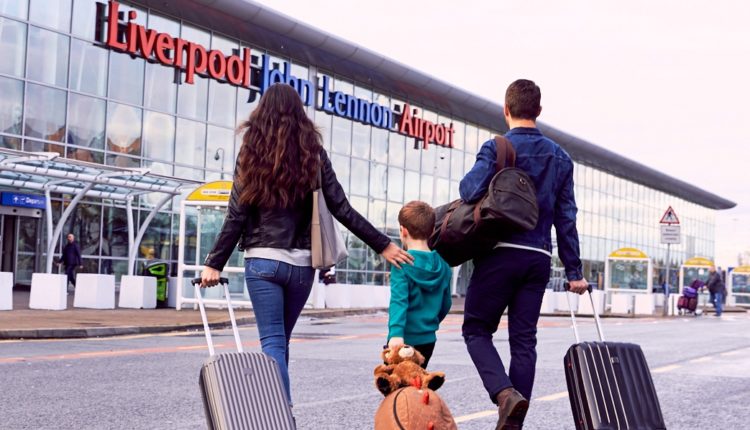Blocking the growth of Liverpool John Lennon Airport would have a devastating impact on the future prosperity of Liverpool city region, costing thousands of jobs and billions in GVA. Tony McDonough reports
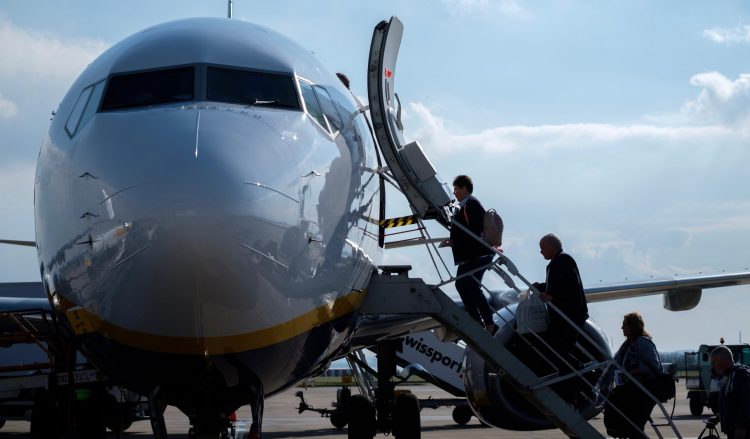
Stopping the expansion of Liverpool John Lennon Airport could see the city region lose billions of pounds and thousands of jobs and has been described as “an act of self-harm”.
There is a growing hostility to the future growth of LJLA, as evidenced by cross-party support for a motion against its expansion at a meeting of Liverpool City Council last week. Councillors are objecting to the environmental impact of physical expansion and the increase in emissions from more flights.
But business leaders are warning that any challenge to the expansion of the airport, which was laid out in a report in 2019, could have a huge and lasting negative impact on the future economic prosperity of the city region.
Stopping the growth of the airport may not just mean the loss of future economic benefits. If Liverpool Airport cannot expand it won’t just stay as it is. International competition for new routes is fierce and airports cannot stand still. If it cannot grow it may shrink. It’s size and standing could diminish and airlines may desert it.
Liverpool Chamber of Commerce chief executive, Paul Cherpeau, said: “The creation of any perceived ‘anti-airport’ sentiment and dialogue by city region leaders, politicians and partners should be avoided.
“We should be working collaboratively with our airport, using it as a tool of our economic recovery and rebuild whilst ensuring it minimises its overall environmental impact.”
READ MORE: Liverpool Airport tops punctuality league
And Frank McKenna, chairman and chief executive of private sector lobby organisation Downtown in Business, was even more forthright. He added: “The commercial naivety of this resolution beggars belief.
“Do councillors not appreciate the cash, the jobs, the significant benefits the airport, directly and indirectly, brings to the city region economy? Did they not question the impact that this will have on the Freeport initiative?”
Liverpool Mayor Joanne Anderson acknowledges the airport “supports a huge amount of investment and jobs in our city and its success is vital to our economic health”. But she added that much had changed in the time the airport had laid out its mastreplan.
“Since that strategy was written, the council has also declared a climate emergency and the UK has hosted COP26 setting out our commitments to a net zero carbon city and country”, she explained.
“Liverpool’s post-pandemic economic strategy sets out clear priorities to increase green jobs available, which will be vital in meeting our 2030 target, and through the new triple lock process, all our strategic decisions take into account social value, equality, diversity, inclusion and environmental factors.
“Clearly a balance needs to be achieved where economic growth is sustainable for the planet and any airport development in this country would need to be both financially and environmentally sound.”
City region Metro Mayor Steve Rotheram also said it was important to recognise “the strategic importance of Liverpool John Lennon Airport to the city region economy in terms of international connectivity and as a vital local employer with good, unionised jobs”.
He added: “The Combined Authority provided the airport with significant support throughout the pandemic – including a £30m loan to help ensure operations could continue in the face of unprecedented challenges to trading conditions and to protect local jobs.
“We must strike a balance between continuing to attract inward investment to our city region and our ambitious net zero carbon targets.”
Economic driver
LJLA currently contributes an estimated £340m to the GVA (a measure of economic output) of Liverpool city region every year and supports more than 5,000 jobs.
Under expansion plans published in 2019, that would see the growth in both the airport itself and in commercial activity on adjacent land, this annual GVA contribution would rise to almost £600m with the number of jobs created above 12,000. Over several years that lost value would run into the billions.
The economic impact of an airport goes far beyond the airport itself. Liverpool’s pre-pandemic visitor economy was worth £5bn a year with the number of overseas visitors to the city having increased significantly over the past decade.
Connectivity is also critical to new investment. Both domestic and overseas investors are more reluctant to invest into a region with poor transport infrastructure.
This is why the announcement by Lufthansa that it will provide a route from Liverpool to its global hub at Frankfurt later this year was greeted with such enthusiasm by both political and economic leaders in the city region. The route could open up a new avenue of global investment for the city region.
Anti-business mindset
Aat a full meeting of Liverpool City Council last Wednesday evening there were signs of growing cross-party opposition to the expansion of LJLA.
Green councillor Anna Key put forward a motion asking the city council to sell its 10% stake in the airport. Until September 2018 the council held a 20% stake in the airport. It sold half of that stake for £19m, making a significant profit on its original £2m investment.
It was a key part of former Mayor Joe Anderson’s plan to generate revenues through an invest-to-grow strategy.
Cllr Key told the meeting: “You cannot move to a net-zero economy by 2030 and expand the airport – that cannot happen.” And Labour councillor Lena Simic also said: “Let’s be clear, nobody wants airport expansion.”
However, it is not clear on whose behalf Cllr Simic was speaking. People from across the Liverpool city region and beyond have used the airport in their millions. In the past 20 years airlines such as easyJet, Ryanair and, more recently, Wizz Air, have expanded rapidly to meet soaring demand.
READ MORE: Ryanair unveils new Liverpool routes
In her maiden speech to the council following her election in 2019, Cllr Simic called for the “smashing of neoliberalism and capitalism”. It’s a mindset that harks back to the dark days of Militant in the 1980s and is sure to send a chill through the city’s business community.
A puzzling intervention came from another Labour councillor, Hetty Wood, who said there should be a report into the “consequences of removing all financial support from LJLA”. However, the airport currently receives zero financial support from the council.
Cllr Sarah Doyle, the city’s Cabinet Member for Development and Housing, was also unsupportive of LJLA’s ambitions, saying: “We are not committing to an airport expansion.”
And Mayor Anderson insisted that Liverpool’s Local Plan, which has now been adopted, is not the green light for airport expansion, as some claim. She added: “A planning application would need to be submitted and that would have to be judged on its own merits.
“And for a scheme of this scale, the final decision could well rest with an independent planning inspector at a public inquiry. If one thing this pandemic has shown me, it is unwise to predict the future. But I know one thing for certain, if a scheme does come forward the people of Liverpool deserve to hear all the facts before they get the opportunity to have their say.”
In his statement, Mr Rotheram added: “Under my leadership, the Combined Authority was the first to formally declare a climate emergency and set-out proposals for us to be net-zero carbon by 2040 or sooner – a full decade ahead of national targets.
“Despite planning and aviation being outside of the remit of our devolution agreement, I believe that any plans for the airport must align not only with our net-zero ambitions, but also with our plans for inclusive, economic growth – ensuring our local communities are fully consulted and empowered.
“However, we must not allow this debate to become a binary choice between protecting jobs (and attracting new ones) – and reaching our climate objectives. Our future economy needs to deliver both.”
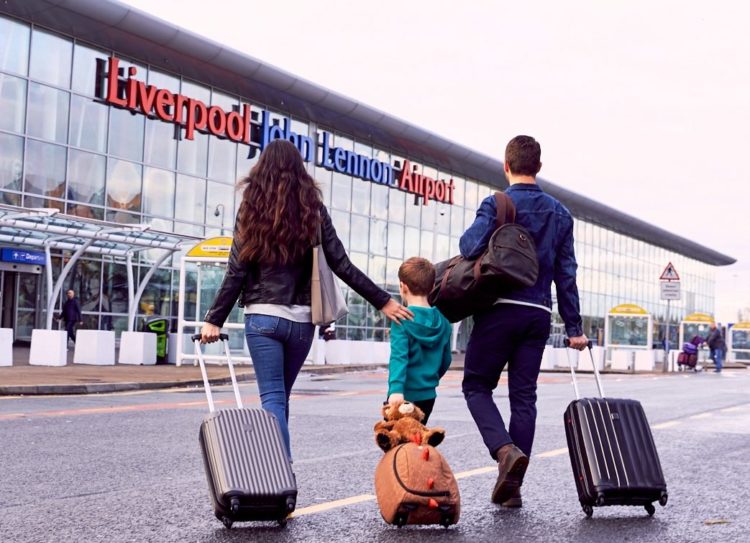
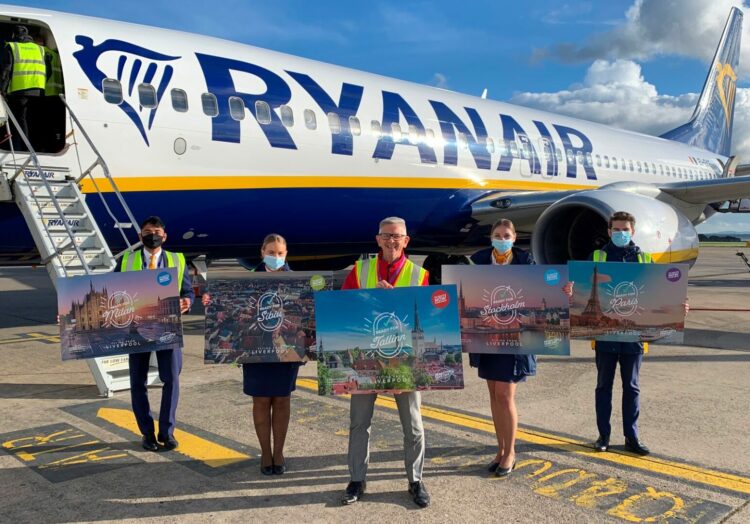
Strong recovery
Prior to the pandemic, LJLA’s annual passenger numbers exceeded 5m a year. The disruption caused by COVID-19 has seen those numbers tumble but there are clear signs of recovery. Last week easyJet said it expected capacity to be close to pre-pandemic levels by the end of the summer.
Liverpool Airport will also play a central role of Liverpool city region’s new Freeport plan that is due to go live in the spring. In fact, it is likely the airport will be one of the first locations to go live. Its expansion onto the Oglet Shore (southside) area, another bone of contention for city councillors, would see a growth of freight and logistics facilities.
Demand for this is expected to increase due to the Freeport zone. Manchester Airport is already way ahead on this front. It has seen the creation of Airport City, an £800m logistics hub which over the next 10 to 15 years will see the delivery of 5m sq ft of commercial space and up to 16,000 new jobs.
Expansion of southside at Liverpool Airport, including a possible lengthening of the runway to accommodate long-haul flights, would see a net creation of around 3,000 direct jobs and a £200m uplift to city region GVA.
Northside commercial development would see an extra 240 jobs and a £10bn boost for GVA. Combined, these developments would see an extra £3m in business rates for the city council. And that analysis doesn’t take into account the number of jobs that would be created in the wider economy as a result of the expansion.
READ MORE: easyJet capacity set to return to pre-pandemic levels
Local councillors are unlikely to be able to block any expansion through the city’s planning committee. Any significant growth in the footprint of Liverpool Airport would ultimately be decided by a Government planning inspector, not the council.
However, if the council’s official stance towards expansion was to become hostile it would potentially send out a terrible message to potential investors in the city.
There is little evidence more people in the city region would stop flying if the airport offered fewer routes. With Manchester Airport relatively easy to get to that demand would simply shift 30 miles east and the net number of flights would not decrease. Liverpool’s loss would be Manchester’s gain.
There is also a big effort in the aviation sector to shift towards decarbonisation. Ryanair is spending hundreds of millions of pounds in lower emission aircraft and easyJet is investing heavily in the development of both electric and hydrogen-powered aircraft. Liverpool could miss out on benefiting from those innovations.
100 aviation and aerospace experts have joined the FlyZero project which is led by the UK’s Jet Zero Council and the Government-funded Aerospace Technology Institute. Involving planemaker Airbus the project aims to develop a hydrogen-fuelled plane that could carry 279 passengers halfway around the world (eg from London to San Francisco) without a stop.
Liverpool Airport has also acknowledged its responsibility to help minimise carbon emissions. In the 2019 document outlining the case for expansion, it talks about measures it can take around airport infrastructure to deliver a more energy-efficient operation.
In the last couple of weeks it has also unveiled plans to build a large solar farm alongside the runway. It wants to build a 13-acre farm to the east of its site, which it hopes will generate up to a quarter of its annual energy needs.
Critical connectivity
Liverpool Chamber chief Mr Cherpeau said that LJLA was a “crucial piece of connectivity infrastructure in the Liverpool city region”. He added: “Prior to the pandemic it was servicing close to 5m people every year.
“For the past decade it has been instrumental in stimulating inbound and outbound connectivity and investment among leisure and business travellers across the world. Any decision to unilaterally stop the potential for future expansion of the airport would be short-sighted and ignore the positive impact our airport has – and can continue to have – on our city.
“The aviation industry is correctly under pressure to reduce its carbon impact and the pending changes required for the industry will inevitably drive innovative solutions and the attainment of ‘Jet Zero’ but these will take time.
“The pursuit of a net zero economy in Liverpool city region will inevitably require overhauling the way we do things and making difficult choices. Yet the city’s airport is far from our biggest issue and it should not be used as a convenient lightning rod amidst the range of other transformational actions required.
“It has just announced a new route to Frankfurt with ongoing connectivity to global destinations and the attraction of Lufthansa as a new carrier, as well as attracting unprecedented applicants for jobs across the estate.
“The airport has the capability of recovering from a devastating two years to servicing future passenger, business and freight demand and ensuring Liverpool retains its status as a global city. Let’s work with it, not against it.”
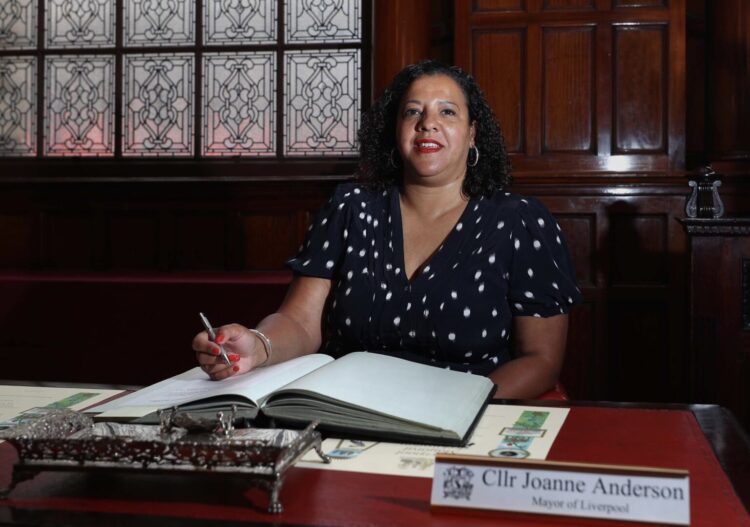
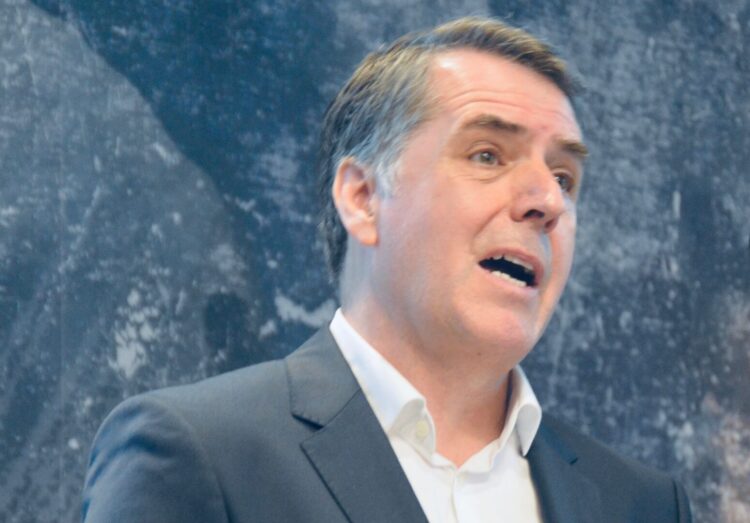
Mr McKenna said the resolution to the council was “beyond stupid”. He added: “I am astonished, truly gobsmacked by this announcement. Liverpool’s politicians are inflicting self-harm on their city. There was no engagement or consultation with the business community, nor as far as I am aware, the airport itself.
“Did they not consider that, pre-pandemic, LJLA was a significant driver of prosperity in the region bringing an estimated £340m per annum in GVA and supporting 5.200 jobs across the Liverpool city region?”
Negative message
Mr McKenna also claimed that the proposal will send a negative message about the city to potential investors. He said: “This type of gesture politics makes it look like Liverpool is closed for business and has no ambition. A city that has an impressive reputation internationally, closing potential opportunities to attract more visitors is not a good look.
“I hope the city’s leadership reflects on this poor decision by councillors and uses its influence and power to open a genuine dialogue with the airport and business stakeholders about the future of the aviation industry and its impact on our visitor economy – which has been battered during the past two years.
“I also hope there is a recognition that aviation is at the forefront of technological advancement to achieve greener air travel in the future, and that making such major policy moves against one of our key economic assets should be done in a far more transparent, consultative, and informed fashion.
“The recent news that Lufthansa had agreed new routes from Liverpool gave the airport a real boost. This is a kick in the teeth. Although, it must be said, the cities of Manchester, Birmingham, and Leeds will be delighted with the news.”

